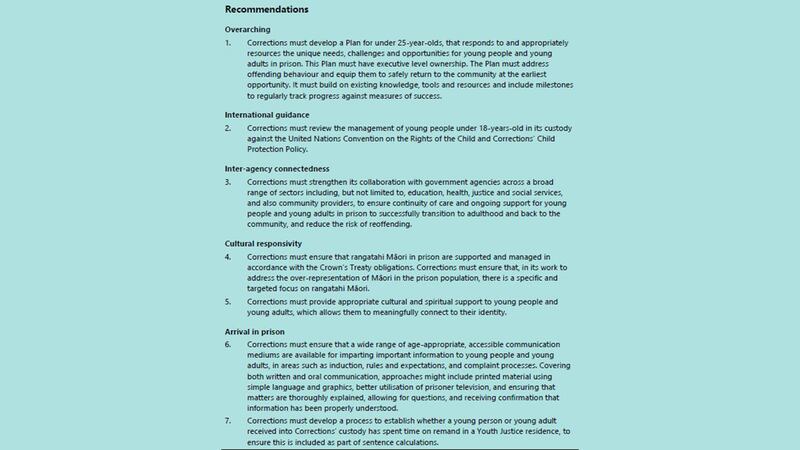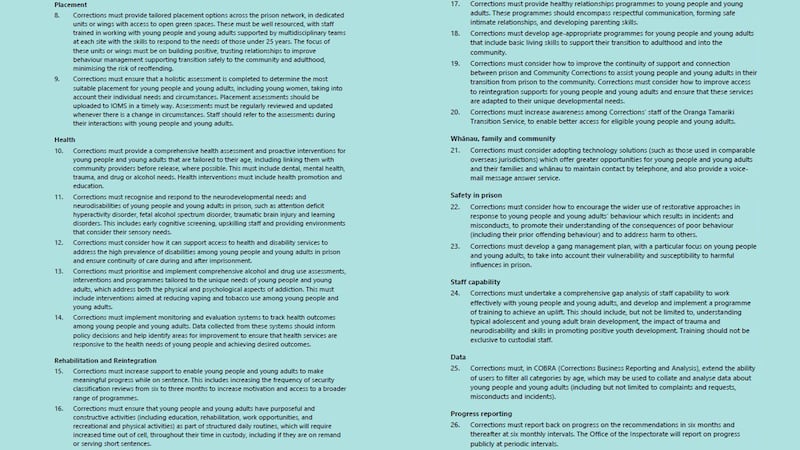“The cultural connection is important once you learn and immerse in it.”
That is what one of the rangatahi told the Office of the Inspectorate in a thematic report about how the Department of Corrections manages people aged under 25 in prison.
The aim of the report is to help stop offending and safely return the youth home.
It features the voices of more than 206 rangatahi from 18 different prisons, alongside those of Corrections staff, ex-convicts who have turned their lives around, lawyers and officials from around the world, as well as experts from various fields, including culture, health, gender and gangs.
Within its pages, it makes 26 recommendations, which have been accepted in principle by Corrections.
Chief Inspector Janis Adair said young people in prison had high complex needs that were sometimes not met.
“The recommendations are a call to action for Corrections to make improvements, such as by offering more cultural support, teaching basic living skills, giving young people more to do in prison, and keeping them away from gangs. I expect Corrections to take steps to address these challenges and I will be monitoring and publicly reporting on their progress.
“These recommendations will ultimately lead to safer communities and just outcomes. Real and lasting change is needed, and it is imperative that this work is prioritised.”
Between 2023 and 2024, up to 880 people in prison were under the age of 25, with only two being under 18 years old, as most 17-year-olds have been sent to Youth Justice Facilities since 2019. Six out of every ten rangatahi were on remand.
According to the report, a lot of the young people had high and complex needs due to experiencing childhood trauma, poverty, cultural dislocation, neurodevelopmental disorders, limited education or work experience, gang affiliation and addiction.
It found, in principle, Corrections was aware of these developmental needs but had done nothing due to lack of leadership, investment, oversight and overall resourcing.
Many rangatahi reported struggling to access education, rehabilitation and reintegration opportunities, particularly in high-security units. They expressed a need for support in building basic life skills, forming healthy relationships, and preparing to be good parents. Many also faced challenges securing accommodation, finances, and support upon release, leaving them feeling unequipped to avoid reoffending.
Most prisoners who took part were placed in mainstream facilities, often in high-security units alongside adult prisoners due to high remand numbers. These environments had exposed them to harmful influences, including gangs, and limited their access to fresh air, exercise, and constructive activities, with some spending up to 22 hours a day in their cells.
A positive that came out of the report saw many reporting feeling healthier due to drugs being unavailable, diet, and exercise. Currently, there are no specific health policies for rangatahi in prison.
Starting in September 2023, the thematic inspection was completed in July 2024.
“Over the last five years the impact of legislative and policy changes as well as significant events, including the Covid-19 pandemic and the increasing remand population, were adversely impacting on Corrections’ ability to effectively manage those aged under 25 years in prison,” Adair said.
The 26 recommendations





